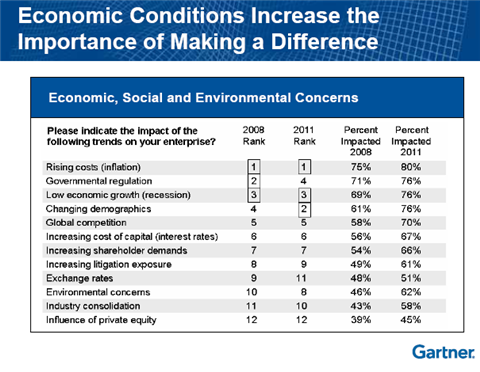Gartner's CIO pep talk: Make a difference or be automated (or worse)

Gartner analyst Mark McDonald late Sunday laid out the chief information officer agenda for 2009 and the big theme is that tech executives need to make a business difference or fade away. Why? Companies have other options--software as a service, cloud computing and shared services--that could deliver more value than the technology department.
McDonald's argument, delivered at Gartner's Symposium and ITxpo, goes like this: Information technology's traditional strength has been implementing and operating systems (enterprise resource planning for instance). Anyone that views the future to be an extension of those skills could be toast.
Meanwhile converging trends such as digital natives, global customers, green computing and convergence will require a different CIO, one that's more innovative and looped into the business. According to Gartner CIOs expect their companies to require them to innovate, expand into new markets, mine business intelligence and become a competitive advantage by 2011 without a lot of incremental spending.
This chart from Gartner's research shows what CIOs are up against:
How a CIO delivers a difference will depend on the company, but the bogeyman is standardized IT services from elsewhere. In general, IT has to make a difference in your company's market.
McDonald's other message: Effectiveness doesn't correspond with budgets. This chart tells the tale, but you'll need a few glances before it hits you (click to enlarge).
My takeaways from that chart are the following: The most effective IT departments outsource less (16 percent vs. the bottom rung at 26%) and have been spending more on hardware (24 percent vs. the bottom rung at 16 percent). All groups mentioned in that slide spend about 31 percent on personnel.
In the end, McDonald's talk, which focused on picking projects and measuring results, really boils down to people. Without the right staff--and CIO for that matter--the IT department could be in for a world of hurt.
